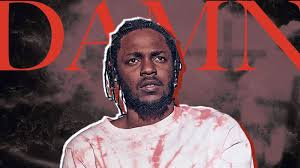Kendrick Lamar is a unique and important voice in today’s music industry, writes Eric Fiszelson from Paris. Eric draws inspiration from Lamar’s take on humility for how to conduct relationships in the corporate world.
As a teenager and a young adult, I used to listen to a lot of rap music. De La Soul, Public Enemy, KRS1, the Wu-Tang Clan, Guru, A Tribe Called Quest: in the 80s and the 90s, the cassettes of these East Coast acts were very often playing in my Walkman… I liked West Coast vibes too. Filled with samples of Parliament, Funkadelic and other funk bands of the 70s, the flows and beats of NWA, 2Pac, Snoop and Dr Dre make you want to (in the words of Run DMC) “bob your head”… But time passed. I expanded my musical horizons and was no longer attracted to this kind of music. In the age of trap and mumble rap, the days of my inclination for hip hop were seemingly over…
Then, in early 2016, something unexpected happened. One night, in the taxicab that was driving me home after a long day at work, I was browsing YouTube on my mobile, and landed
on an excerpt of the Tonight Show with Jimmy Fallon (I know…). His musical guest was a young man from Compton who appeared on stage in the middle of real musicians, playing real instruments. His presence. His flow. His uncanny command of rhythms and rhymes. His lyrics. His intensity. I was blown away. Awestruck. His name was Kendrick Lamar, and with one single song, “Untitled 8”, he reignited my enjoyment of hip-hop. Judge for yourself.
Each of his appearances (whether on a talk-show or an award ceremony) never ceases to surprise me. Kendrick Lamar relies on visual arts, poetry, and dance to enhance his performances. Kendrick Lamar is paying tribute to “old school” rap whilst pushing the boundaries of hip hop even further. Kendrick Lamar has a subtle take on social justice issues. He is prolific. He is self-taught. He is an innovator. So his Pulitzer Price for music in 2018 (the first ever for a rapper) did not really come to me as a shock, but rather a well deserved recognition of his talent. The jury explained that his latest album, “Damn”, was offering “affecting vignettes capturing the complexity of African American life”. Some even argue that he should have received the Pulitzer Price for literature.
Kendrick Lamar, humility and leadership
The more I got to discover his music and his persona, the more I realised that Kendrick Lamar was the embodiment of one of his songs, “HUMBLE”. In interviews, Kendrick Lamar comes across as serene, introspective, and modest: “as conscious as my music sounds, I would never point the finger because every day I make mistakes.” That struck me. Why? Because humility does not always sit well with the (often testosterone-driven) corporate world. And yet, humility is the best way to connect with, and understand, those who are around us. Not only our associates and our peers, but those sitting across the table too. And, even more importantly, our clients.
In an article published in September 2009 in the Harvard Business Review, John Baldoni argues that humility is an essential leadership trait, and encourages leaders to be “more grateful than proud”… In his famous book Good to Great, Jim Collins further asserts that this skill is key for corporate leaders if they want to succeed. Being authentic, listening to others and appreciating their feedback: this makes a difference.
I am deeply grateful for Kendrick Lamar. Not so much because he helped me rediscover a buried passion of mine, but because the voice of this 30-year old man who survived a childhood of violence and hardship is an inspiration.




Leave a Reply